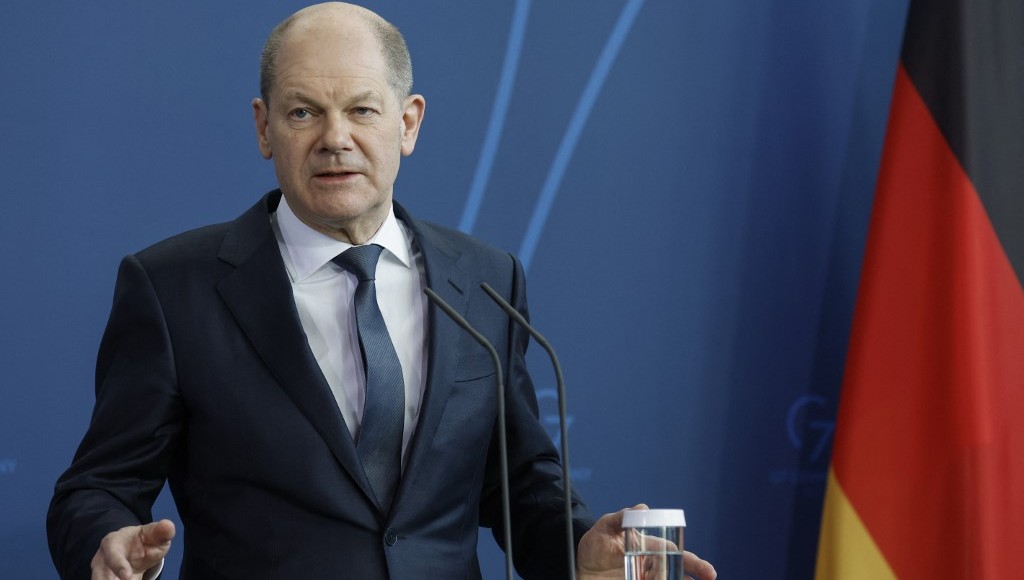German Chancellor Olaf Scholz, who was asked if restrictions on arms exports to Turkey would be revoked after the country agreed to lift its opposition to NATO membership bids filed by Finland and Sweden, replied that there was “no arms embargo on Turkey,” Deutsche Welle Turkish service reported on Wednesday.
Turkish President Recep Tayyip Erdoğan, President Sauli Niinistö of Finland and Prime Minister Magdalena Andersson of Sweden on Tuesday met in Madrid under the auspices of NATO Secretary-General Jens Stoltenberg and agreed on a trilateral memorandum to address Turkey’s security concerns, paving the way for the two Nordic countries’ NATO membership.
The memorandum was signed by the foreign ministers of the three countries — Mevlüt Çavuşoğlu of Turkey, Pekka Haavisto of Finland and Ann Linde of Sweden — in the presence of all three national leaders and the secretary-general.
Scholz on Wednesday stated that they welcomed the paving of the way for Sweden and Finland to join NATO, following the agreement reached with Turkey.
“Both countries are very suitable for our Alliance,” added Scholz, emphasizing that Germany would contribute its part, especially for the security of its Eastern European partners.
When asked if the arms export restrictions to Turkey would be lifted after the country green-lighted NATO membership for the Nordic pair, the chancellor said there was no arms embargo imposed on Turkey, according to DW.
In response to Ankara’s 2019 military incursion into Syria, the two Nordic countries had imposed embargoes on weapons deliveries to Turkey, while Germany announced that it would not allow the export of weapons “of the type that could be used in Syria.”
By signing Tuesday’s memorandum in Madrid, Sweden and Finland also agreed to lift their embargoes on weapons sales to Turkey.
German Foreign Minister Annalena Baerbock also expressed satisfaction with the agreement reached on Sweden and Finland, saying the membership of the two countries would strengthen NATO.
“Sweden and Finland … have their own powerful armies. They devoted great resources to them. Therefore, their membership will make NATO even stronger both in its defense capabilities and as an alliance of democracy and international law,” she said.
Saying that they had “difficult weeks” before the agreement, she added: “Ankara’s resistance [to the Nordic countries’ NATO membership] has made clear that there are different interests in the alliance. However, it also showed that the main issue is to stand for security, democracy and freedom.”

